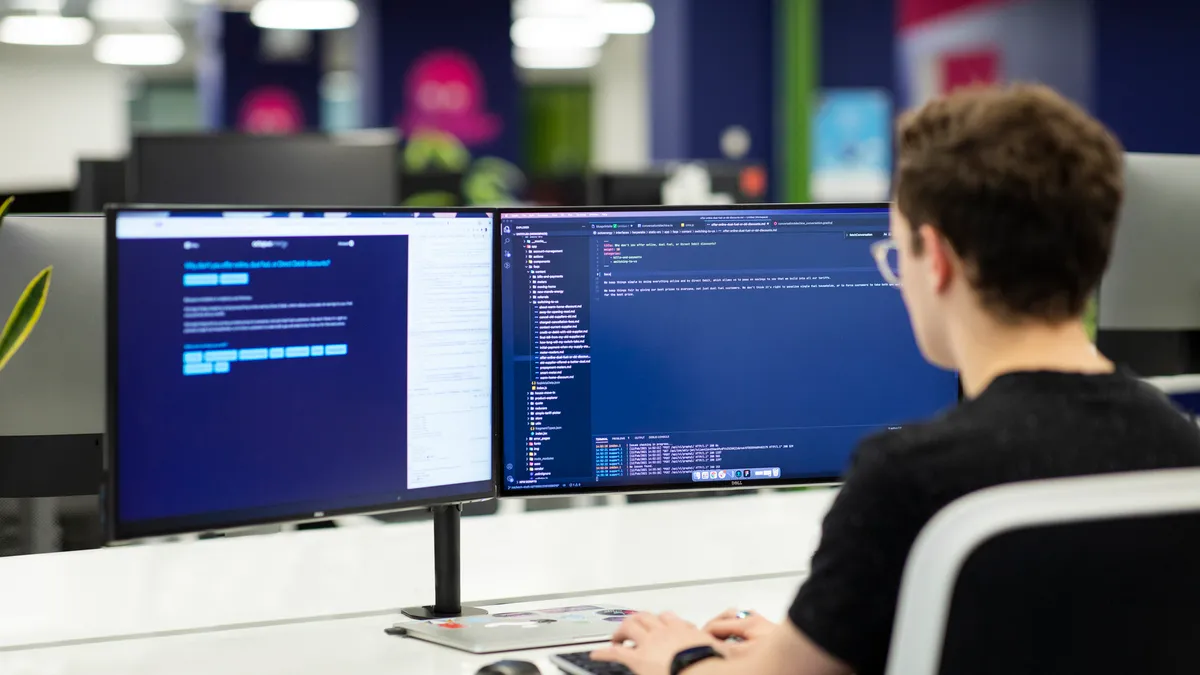When was the last time you ordered a taxi on your phone, or a tasty, hassle-free meal to your door? How easy was it? Most of us can point out what the transition to digitized, cloud-based operating systems means for us as end customers. From online shopping and ride-sharing platforms to food delivery and insurance, a cloud-based revolution is busy transforming many of the industries and services upon which we rely — clearly for the better.
Yet a cloud-based transition often goes hand in hand with another key transformation — an internal shift for us as employers, and team members. In many cases, it’s these changes that are at the heart of many of the time-saving shortcuts, service improvements and innovative products that define our increasingly-digitized industries.
The utilities industry has been relatively slow to catch up to this digital revolution. Having worked with and run customer operations at several of the world’s leading energy companies, I’ve been fortunate to witness the benefits that technology and agile ways of working bring when it comes to transforming businesses. This transition can completely transform the experience for teams and their engagement, offering a great place to work — with rewarding and challenging careers — and outrageously good service for customers, while delivering ever better results when it comes to cost to serve.
You can imagine that smart, pioneering, cloud-based systems might simplify certain tasks for utilities, automating processes and unlocking all sorts of new tools. Integrated machine learning technologies can, for example, help teams diagnose consumer issues quickly and efficiently, and provide increasingly complicated solutions directly.
Beyond empowering more productive team members, it’s important to recognize the wealth of tangible, cultural benefits afforded by cloud-based systems. Unlike legacy utility operating systems which consist of disparate systems that result in clunky billing, metering and payment systems and ultimately isolated teams, cloud-based systems give us the tools to tear down those boundaries. I’ve personally overseen the dismantling of siloed teams and the simultaneous upskilling of energy experts who can answer almost every customer query they encounter quickly and easily — and it’s all enabled by smart systems. For customers, this means the days of waiting on hold while being passed from team to team are over, while team members themselves rejoice in their newfound autonomy, responsibility, and professional mobility.
It’s frankly incredible seeing what this does for job satisfaction at every level of the business. In other words, it's not just newer employees who embrace these systems; senior staff (those who usually cling to legacy systems) recognize it too. The CEO of one of Europe’s biggest energy utilities — someone I've worked with to help roll out a cloud-based system — recently told me that many of his senior employees “would sooner quit than go back to the old systems.”
Beyond job satisfaction, it’s also important not to underestimate how exciting it can feel working in an environment where things move quickly. Where tech teams were previously consigned to risk mitigation and vendor management and historic platforms could take months to update, the cloud-native system I work with — Kraken — can be updated literally hundreds of times a day with a multitude of fascinating, helpful additions. This not only makes such a system more reliable (another win for end-customers and employees), but also empowers utilities to speedily roll out innovative internal technologies and customer-facing products.
Thanks to cloud-native systems, I’ve experienced the thrill that comes with walking the industries’ cutting-edge. For energy utilities, this manifests as a wide range of incredible, meaningfully-green innovations: from smart tariffs that reward people for using energy when a local wind turbine is blowing, to AI systems that charge EVs on the very cheapest greenest energy overnight. All this makes people feel great about the work they’re doing. After all, would you rather work for a utility that faces backwards — or one that drives towards a greener, smarter future?










